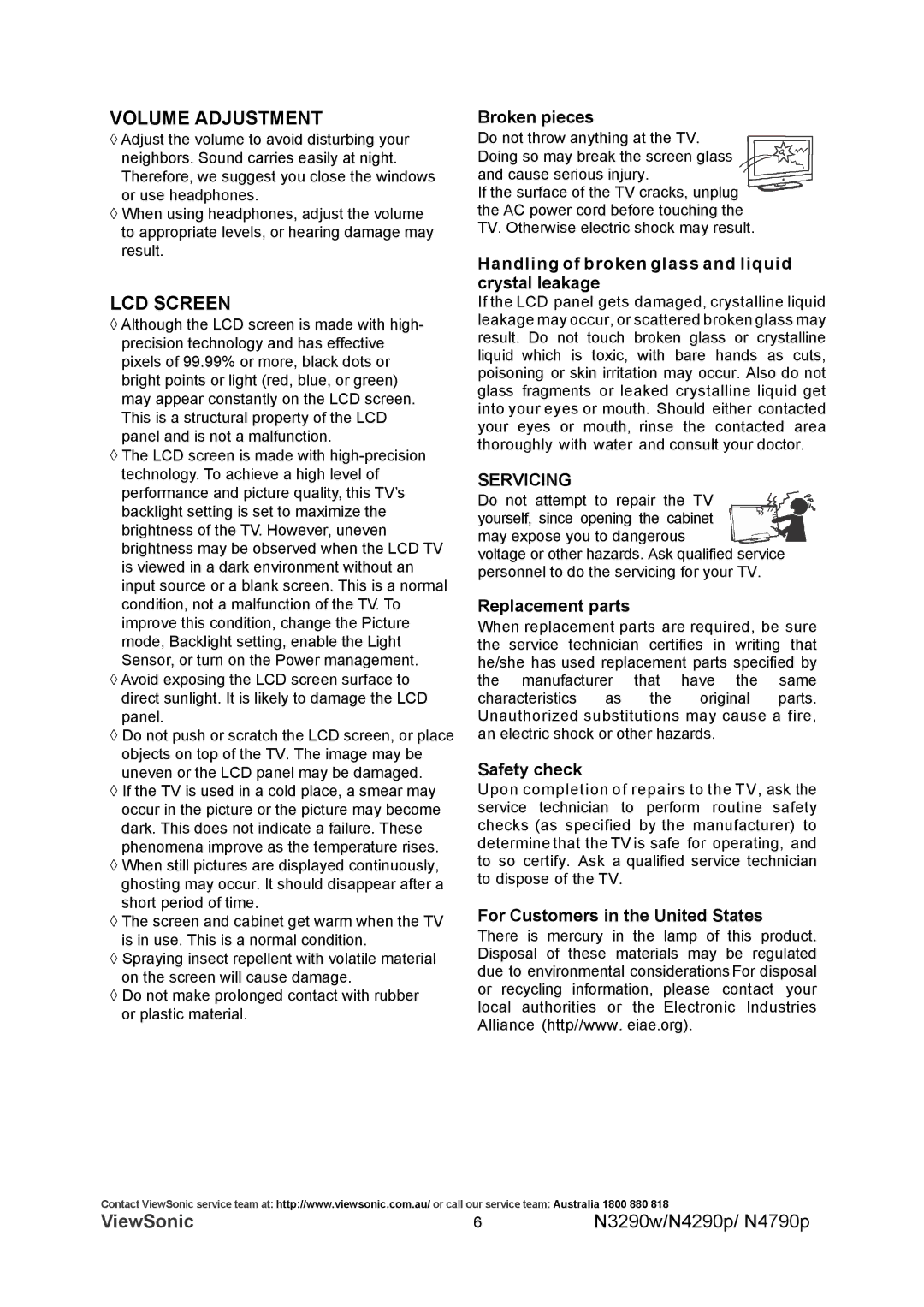
VOLUME ADJUSTMENT
◊Adjust the volume to avoid disturbing your neighbors. Sound carries easily at night. Therefore, we suggest you close the windows or use headphones.
◊When using headphones, adjust the volume to appropriate levels, or hearing damage may result.
LCD SCREEN
◊Although the LCD screen is made with high- precision technology and has effective pixels of 99.99% or more, black dots or bright points or light (red, blue, or green) may appear constantly on the LCD screen. This is a structural property of the LCD panel and is not a malfunction.
◊The LCD screen is made with
◊Avoid exposing the LCD screen surface to direct sunlight. It is likely to damage the LCD panel.
◊Do not push or scratch the LCD screen, or place objects on top of the TV. The image may be uneven or the LCD panel may be damaged.
◊If the TV is used in a cold place, a smear may occur in the picture or the picture may become dark. This does not indicate a failure. These phenomena improve as the temperature rises.
◊When still pictures are displayed continuously, ghosting may occur. It should disappear after a short period of time.
◊The screen and cabinet get warm when the TV is in use. This is a normal condition.
◊Spraying insect repellent with volatile material on the screen will cause damage.
◊Do not make prolonged contact with rubber or plastic material.
Broken pieces
Do not throw anything at the TV. Doing so may break the screen glass and cause serious injury.
If the surface of the TV cracks, unplug the AC power cord before touching the TV. Otherwise electric shock may result.
Handling of broken glass and liquid crystal leakage
If the LCD panel gets damaged, crystalline liquid leakage may occur, or scattered broken glass may result. Do not touch broken glass or crystalline liquid which is toxic, with bare hands as cuts, poisoning or skin irritation may occur. Also do not glass fragments or leaked crystalline liquid get into your eyes or mouth. Should either contacted your eyes or mouth, rinse the contacted area thoroughly with water and consult your doctor.
SERVICING
Do not attempt to repair the TV yourself, since opening the cabinet may expose you to dangerous
voltage or other hazards. Ask qualified service personnel to do the servicing for your TV.
Replacement parts
When replacement parts are required, be sure the service technician certifies in writing that he/she has used replacement parts specified by the manufacturer that have the same characteristics as the original parts. Unauthorized substitutions may cause a fire, an electric shock or other hazards.
Safety check
Upon completion of repairs to the TV, ask the service technician to perform routine safety checks (as specified by the manufacturer) to determine that the TV is safe for operating, and to so certify. Ask a qualified service technician to dispose of the TV.
For Customers in the United States
There is mercury in the lamp of this product. Disposal of these materials may be regulated due to environmental considerations For disposal or recycling information, please contact your local authorities or the Electronic Industries Alliance (http//www. eiae.org).
Contact ViewSonic service team at: http://www.viewsonic.com.au/ or call our service team: Australia 1800 880 818
ViewSonic | 6 | N3290w/N4290p/ N4790p |
